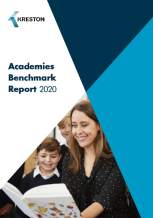With more than 200 members in our Academy team, we've got the capacity and expertise to meet your needs.
Do Academies need to do any internal scrutiny this year?
22nd April 2020
Our clear recommendation is that yes you should seek to continue with your internal scrutiny programmes this year, as far as is possible and practical. Being able to obtain, rely on and take decisions from clear, robust assurance is critical, now more than ever.
We have set out why we believe this to be the case below, in the context of the ESFA publishing a letter to Accounting Officers that covered several areas, but included a paragraph on internal scrutiny.
The requirements for internal scrutiny were expanded in the 2019 Academies’ Financial Handbook issued last summer applicable for the current academic year, and essentially made it clear that trusts (and boards of trustees in particular) were responsible for managing all risks – both financial and non-financial – that faced their trust.
A key element of this risk management was the assurance obtained by the trustees on how effectively these risks were actually being managed in practice. This assurance should come from the trust’s own management team as well as from external sources – for example, by the completion of a programme of internal audit.
The lockdown has clearly meant that planned on-site internal audit visits have either had to be completed remotely where possible, or deferred pending the re-opening of schools. The ESFA letter acknowledges this, noting:
Internal scrutiny
"In relation to the internal scrutiny requirements in the Handbook, whilst in-person review visits to academies would be inappropriate at present, it is at boards’ discretion whether remote checks are feasible and helpful in managing risk during school closures. Looking further forward, trusts’ audit committees may find that the current unique circumstances can help shape their plans for internal scrutiny and crisis management in the future."
Let’s be clear. This is NOT the ESFA saying to boards that they are in any way absolved from the responsibility to manage the risks of their trusts. Boards collectively, and trustees individually, still need to be able to clearly articulate what their key risks are and by what means they are confident that these risks continue to be managed in practice.
Lockdown risks
The exposure has almost certainly increased for many of the risks faced by trusts following Covid19 and the related lockdown situation.
School staff are being asked to carry out a range of new duties, potentially at unfamiliar locations (and with unfamiliar children) where local schools have pooled resources.
Trust management teams are busy dealing with responding quickly and effectively to these unprecedented and fast-changing challenges, whilst at the same time ensuring the key processes – including payment of staff and suppliers – continues without interruption or incident.
This is further exacerbated, as these processes are now predominantly having to be done remotely. Trust management teams, committees and the board need evidence that all of this is being done properly and without additional exposure to the trust or its staff.
Whilst the temptation for trusts on reading the ESFA statement will be to defer or cancel any internal scrutiny / audit visits, we would highly recommend that trusts instead seek to work with us to determine what assurance can still be gained remotely.
We would note that the ESFA explicitly confirms in the same letter that trust boards will still need to submit an end-of-year scrutiny report in relation to the current year. This report will need to summarise the outcomes of their review of risks facing the trust and the particular assurances they have relied on to reach a conclusion regarding how well the exposure to these risks has been able to be mitigated.
In the absence of a physical visit, we can still do a lot to help and support trusts with this remotely. This can initially simply be a discussion regarding how best the finance/audit committees are able to get assurance from an already very stretched management team.
We can also discuss practical steps for us to complement these assurances, ultimately therefore helping trusts positively manage their risks (and allowing for a properly completed end-of-year scrutiny report).
If you would like to discuss this further, please contact Alastair Campbell, Head of Risk Assurance and Internal Audit, on 07976 920657 or email: ACampbell@bishopfleming.co.uk.





